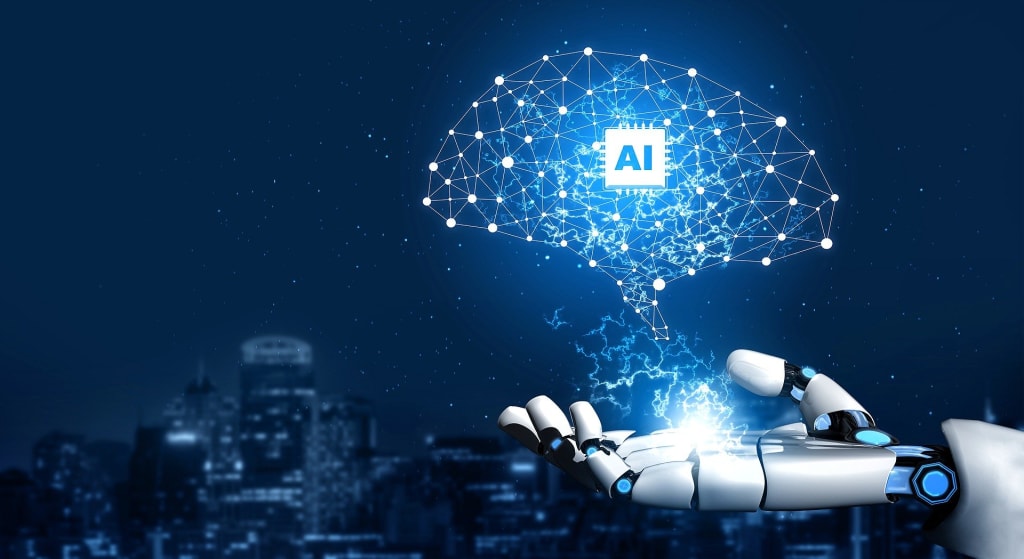The Power of AI: Exploring the Latest Developments and Their Potential to Change the World
"From Deep Learning to Robotics: How Artificial Intelligence is Revolutionizing Every Aspect of Our Lives"

Artificial intelligence (AI) has come a long way in recent years, and the latest developments in this field have the potential to change the world as we know it. With advances in machine learning, natural language processing, and computer vision, AI is becoming more powerful and more integrated into our daily lives. In this article, we will explore some of the latest developments in AI and how they could transform the world.
One of the most exciting areas of AI research is deep learning. Deep learning algorithms use artificial neural networks to learn from large sets of data, allowing them to make predictions and decisions based on patterns that they identify. This technology has been used in a wide range of applications, from self-driving cars to speech recognition software, and it is getting more advanced every day. One example of this is the development of generative adversarial networks (GANs), which are deep learning algorithms that can generate new data that is similar to the training data. GANs have been used to create realistic images and videos, and they could have applications in fields such as video game design and virtual reality.
Another area of AI that is rapidly advancing is natural language processing (NLP). NLP allows machines to understand and interpret human language, which is crucial for developing chatbots, voice assistants, and other applications that require communication with humans. With the development of more sophisticated NLP algorithms, machines are becoming better at understanding context and handling more complex language tasks. For example, OpenAI's GPT-3 language model can generate coherent paragraphs of text that are difficult to distinguish from those written by humans. GPT-3 has the potential to be used in a wide range of applications, from content generation to language translation.
Computer vision is another area of AI that has seen rapid development in recent years. Computer vision algorithms can analyze and interpret images and videos, allowing machines to recognize objects and scenes and even to identify emotions and facial expressions. Applications of computer vision include self-driving cars, facial recognition systems, and video surveillance. One example of recent advancements in computer vision is the development of generative models that can create realistic images of objects that do not exist in the real world. These models could be used in product design or in the creation of visual effects in movies and video games.
AI is also transforming healthcare, with the development of machine learning algorithms that can analyze medical data to identify patterns and predict outcomes. This technology is being used to improve diagnosis and treatment for a wide range of medical conditions, from cancer to heart disease. For example, researchers have developed AI algorithms that can analyze medical images to detect early signs of Alzheimer's disease. These algorithms could help doctors to make more accurate diagnoses and to develop more effective treatments.
In the field of robotics, AI is being used to develop more advanced and autonomous robots. These robots can perform tasks that are too dangerous or too difficult for humans, such as exploring the depths of the ocean or working in hazardous environments. As AI and robotics continue to evolve, we may see more and more robots taking over tasks that were once done by humans. For example, Boston Dynamics' robot dog Spot has been used in construction sites and in the oil and gas industry to perform inspections and to carry out tasks that are too dangerous for humans.
Overall, the latest developments in AI are transforming the way we live, work, and interact with the world around us. From healthcare to transportation to entertainment, AI is revolutionizing every aspect of our lives. As we continue to develop more advanced AI technologies, we can expect to see even more exciting developments in the future. However, it's also important to consider the ethical implications of these advancements and to ensure that AI is being developed in a way that benefits everyone in society.
AI is revolutionizing every aspect of our lives, and as technology continues to evolve, we can expect to see even more exciting developments in the future. However, it's important to consider the ethical implications of these advancements and ensure that AI is being developed in a way that benefits everyone in society.
By Mehmet Caliskan
About the Creator
MEHMET CALISKAN
6be465ca83422ab5303f52ba68c9181463a2d9eecc505aa11d28f715361fce4e
Enjoyed the story? Support the Creator.
Subscribe for free to receive all their stories in your feed. You could also pledge your support or give them a one-off tip, letting them know you appreciate their work.






Comments
There are no comments for this story
Be the first to respond and start the conversation.